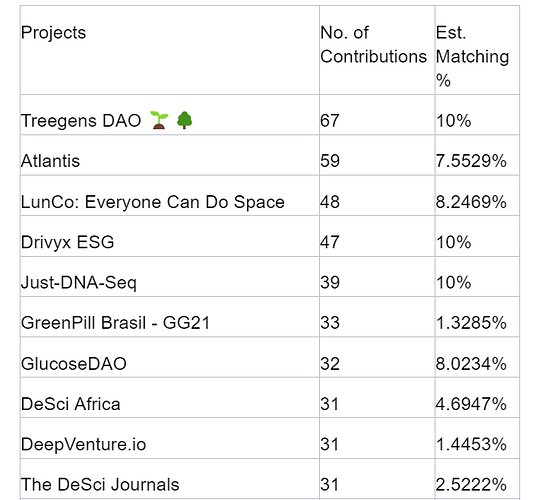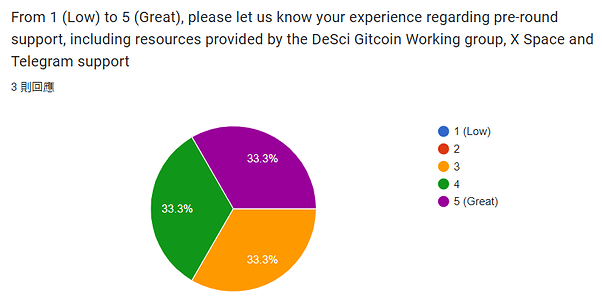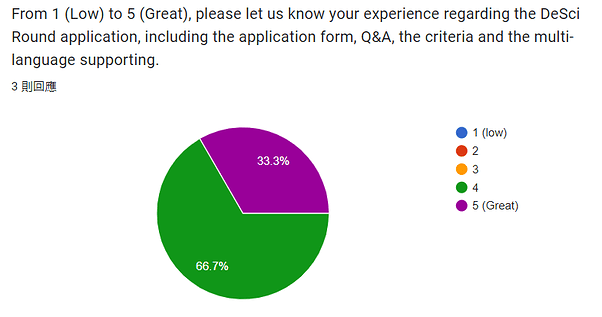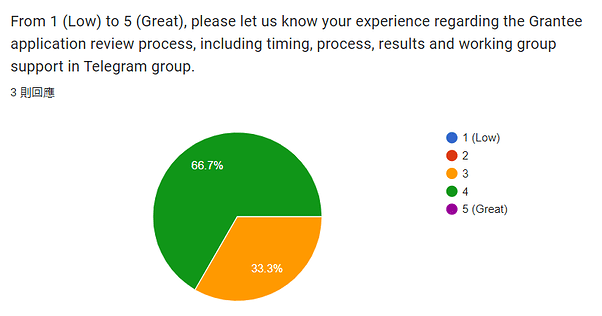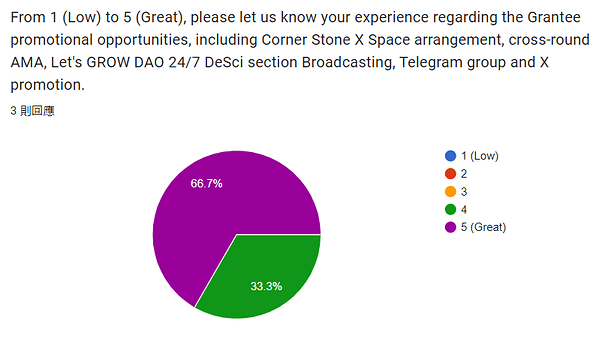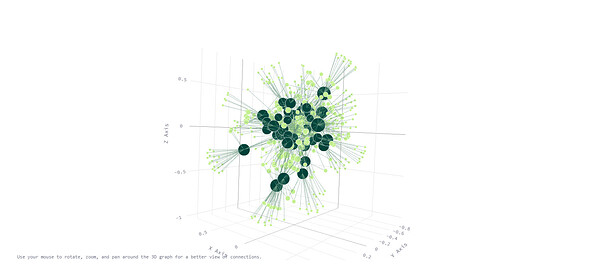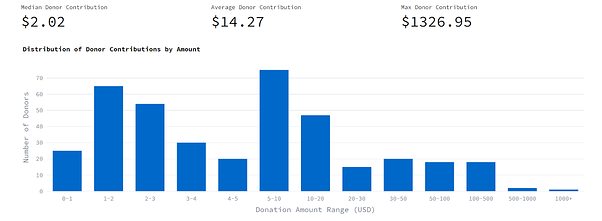Grant Program Impact Report: DeSci Round GG21
Part 1: Round Description and Output
Overview
DeSci (Decentralized Science) envisions a fair and equitable ecosystem for funding, creating, reviewing, crediting, storing, and disseminating scientific knowledge. The core idea is simple: transparency and decentralization lead to collaboration and progress in academia and beyond.
The first DeSci round was held during GR15 in September 2022.
GG21 is the 4th official DeSci round on Gitcoin.
GG21 DeSci Round distributed $39,000 to 49 projects (Table I), all aimed at advancing decentralized science-DeSci. GG21 started August 07, 2024, and lasted until August 21st, 2024. The program focused on a variety of areas, including scientific research, community-building efforts, education, publishing, specific products and services, and developing infrastructure to support DeSci initiatives.
Finances Output
Est. Donations Made: $11,420.93
Matching Funds Available: 39000.0 USDC
Unique Contributors: 390
Number of Contributions: 1,154
Avg. Contribution: $29.28
Participating projects: 49
Table I Top 10 of the DeSci round
Part 2: Implementation, Tools and Promotional Events
There were 3 Cornerstone X Spaces. We have also participated in 14 programs of the Lets’ Grow DAO 24/7 Broadcasting with 30 minutes per day to speak about DeSci and help projects to shill. We have cross-pollinated by participating in other rounds’ X spaces spreading the DeSci word.
Almost daily, posts were published in our X channel @DeSci_Round_Ops showcasing DeSci projects and links to all projects (Gitcoin basket) with a pledge to contribute.
Ref:
GG21 DeSci Round Openning, 28 Jul
https://x.com/DeSci_Round_Ops/status/1817537598824329587
Cornerstone #1, 7 Aug
https://x.com/i/spaces/1nAJEpPawVRGL
Cornerstone #2, 12 Aug
https://x.com/DeSci_Round_Ops/status/1822418831161123314
Cornerstone #3, 20 Aug
https://x.com/DeSci_Round_Ops/status/1824553819205763525
Part 3: Round Feedback summary & Challenge for GG21
Feedback from Stewards and Community:
Steward Deen’s Feedback:
- Positive Aspects:
- Open Criteria: The round’s open criteria allowed a wide range of projects to apply, fostering diversity in the DeSci community.
- Supportive Team & Operators: The operators were consistently available, offering weekly touchpoints that helped grantees stay on track and resolve questions in a timely manner.
- X Spaces Opportunities: The team gave stewards and grantees the chance to host and participate in X Spaces, increasing project visibility and engagement within the community.
- Well-Managed Process: The round was structured and organized, providing a seamless experience for participants.
- Challenges:
- Anchoring Bias: In the review process, if one steward reviewed a project early, it could influence the scores of other stewards. This created the potential for bias in evaluation.
- Due Diligence for Certain Projects: Some projects that appeared suspicious or possibly fraudulent were rated above 0 by certain stewards. However, the average score ensured these projects were ultimately not successful.
- Robust Criteria: In previous discussions, the group considered requiring a KarmaGAP profile for applicants, but this was deemed unfair to new projects. The consensus was to focus on educational content next time, providing a 1-page guide for applicants, encouraging them to create a KarmaGAP profile and remain active on X.
- Steward Education on Funding Mechanisms: Deen suggested a clearer explanation for stewards about how the Gitcoin matching system works. The fact that matching funds are not split equally among all approved projects should be made explicit from the start.
Steward Hamzat III’s Feedback:
- What We Did Well:
- Effective Communication: Weekly syncs among the working group provided a valuable touchpoint for staying aligned and up-to-date.
- Marketing Participation: Stewards were given the opportunity not just to review projects but also to contribute to the marketing process, such as hosting X Spaces and reaching out to projects.
- Areas for Improvement:
- Clearer Criteria Definition: Before the round begins, it would be beneficial to collectively establish the categories of projects we aim to fund, along with other criteria like requiring an X profile for applying projects or a KarmaGAP profile for returning ones.
- Better Communication of Criteria: These criteria should be communicated clearly via AMAs and through a concise information packet that applicants must review before submitting their applications.
Steward Scott’s Feedback:
-
What we did better:
-
Prioritizing Marketing plans: fostering partnerships and collaboration actually helped the whole process as it made us feel supported and connected. Joining other discussions or spaces too helped make other rounds feel carried along. Weekly AMAs and the quality of discussions that ensued made everything interesting.
-
What we could do better:
-
- The need to establish more formal communication channels either through email marketing and official social media updates
-
- Stewardship onboarding and or Round roadmap brainstorm before round begins to identify more ways to provide support and strategy.
-
- Exploring potential ways and methods grantees can raise more funding for their projects during and most likely after the round, sharing resources, organizing workshops or launch a DeSci Business Development series to educate scientists and founders on how to structure, expand and lead teams to success.
Steward Zaff’s feedback
- What we did better:
Grantee Sessions Enhanced Inclusivity: I think the corner sessions did a great job of promoting inclusivity. They really helped carry the community along and raised awareness for the GG DeSci round. It was a great way to engage more people and ensure everyone felt involved in the process.
- What we could do better:
Simplifying the Scoring Process: I felt that the scoring process, especially using Google Sheets, was a bit cumbersome. A more efficient scoring template or platform would make things smoother and less time-consuming for everyone.
- Providing Supporting Documents and FAQs:
Providing more supporting documents, along with detailed FAQs for the grantee communities would be a good idea. I believe this would make the application process clearer, help answer common questions, and ensure applicants are better informed before submitting their proposals.
Coordinator godfather’s Feedback
- What we did well:
Effective marketing and communication strategy. We successfully reached our target audience through various channels, ensuring high visibility and engagement. Our clear and consistent messaging helped convey the purpose and benefits of our initiative, leading to increased participation and interest from stakeholders.
- What we could do better:
we could clearly state our selection criteria for the round. While we outlined general guidelines, there was room for improvement in clearly defining the specific metrics and expectations for participants. This lack of detailed criteria may have caused confusion and uncertainty among applicants and stewards.
Grantees’ Feedback
After the conclusion of GG21, a feedback form was distributed to all 49 approved grantees to gather insights regarding their experiences throughout the process—before, during, and after the round.
Key areas of feedback included:
- Pre-round support, including resources provided by the DeSci Gitcoin Working group, X Space and Telegram support
- DeSci Round application, including the application form, Q&A, the criteria and the multi-language supporting.
- Grantee application review process, including timing, process, results and working group support in Telegram group.
- Grantee promotional opportunities, including Corner Stone X Space arrangement, cross-round AMA, Let’s GROW DAO 24/7 DeSci section Broadcasting, Telegram group and X promotion.
We received three replies at this moment.
Additional Community Engagement Insights:
-
Community Engagement: Grantees appreciated the active promotional efforts, including Cornerstone X Spaces and daily posts on Twitter. These activities provided constant visibility, helping grantees connect with potential donors and collaborators.
-
Cross-Round Collaboration: The cross-pollination between the DeSci round and other rounds, such as the Asia Round, was highly appreciated by both communities. This collaboration resulted in shared audiences and heightened awareness of DeSci projects.
-
Broader Outreach Beyond Gitcoin: The group is considering expanding its scope beyond Gitcoin. As an initial test, the “DeSci Gitcoin Op” project was submitted to GIVETH GIV-ARB QF, receiving $23.24 from 7 donors and $357.27 Arb in matching funds. This experiment showed the potential for diversifying funding platforms and expanding DeSci’s reach.
-
Multi-Language Support:
- The DeSci round made efforts to engage non-English speakers by hosting a Chinese AMA (held in the Asia timezone) and posting round announcements in Chinese. One Chinese-language DeSci project was submitted, and a dedicated Telegram group was set up by working group member Twone to support seven potential Chinese DeSci projects.
- DeSci LATAM also contributed by sharing their project in Spanish, helping to broaden the reach across Latin American communities.
Technical Challenges:
- During the application period, Gitcoin experienced a technical issue that briefly disrupted the process. The DeSci team extended the application window to accommodate affected projects. While the issue was promptly resolved, it highlighted the need to prevent such disruptions in future rounds to ensure a smoother process.
Anti-Sybil Measures:
- Gitcoin introduced a new 3D model expression report to demonstrate the relationships between grantees and donors. This proved highly effective in identifying potential Sybil attacks, significantly reducing manual effort by leveraging Gitcoin’s anti-Sybil tools. Additionally, there were no issues or questions raised about Gitcoin Passport during this round.
Ref: Streamlit
Single Large Donations:
- The team identified that single large donations (e.g., $1,000) had the potential to disrupt the balance of Quadratic Funding (QF) and COCM when compared to smaller donations of $1. For future rounds, the implementation of a cap on the calculation factor for such large donations could be beneficial. This would ensure that large direct donations still support projects but have a limited impact on QF, allowing for more equitable distribution of matching funds across all projects.
Figure: Distribution of donor contributions by amount
Ref:Streamlit
Application Review Process:
- A total of 83 projects applied during GG21, compared with GG20 of 42 applications, with 49 being approved after rigorous review. 34 projects were rejected, supporting the community’s education about clear eligibility criteria for future rounds.
- The application review process involved five stewards rating each project on a scale of 0 to 1. Projects with an average score of 0.6 or higher were approved. For borderline projects, two experienced working group members were invited to review and rate them, ensuring that the round remained inclusive while maintaining high standards.
Manpower & Time Constraints:
- With a small core team managing 49 approved projects (from a total of 83 applications) over the course of two weeks, balancing operational tasks and community outreach was a significant challenge. Limited resources and time constraints affected the depth of engagement and the comprehensiveness of project reviews.
Acknowledgments:
- A special thanks to Mathilda and the Gitcoin team for their technical support, swift problem-solving, and participation in AMAs. Their contributions in both technology and marketing promotion helped make the DeSci Round a success. The team was always available to answer questions and provided outstanding support throughout the round.
Part 4: Lessons Learned and Improvement
- Early Preparation is Key:
- Regular education about DeSci and Gitcoin is vital for building a solid foundation and ensuring all participants are well-prepared. Earlier preparation would have provided more time for community engagement and the creation of educational materials for grantees.
- Providing detailed guidance on how to onboard Karma GAP for DeSci projects is essential to ensure fair participation and transparency.
- Stronger Anti-Sybil Defense:
- Proactive anti-sybil measures, such as Gitcoin’s 3D model for grantee-donor relationships, played a significant role in preventing fraudulent activity.
- For future rounds, the DeSci working group will consider introducing a coefficient factor cap on large single donations. This will allow large donations to continue supporting projects while ensuring that they do not disproportionately impact the Quadratic Funding (QF) distribution. This change will promote a more equitable balance across all participating projects.
- Steward Onboarding and Education:
- A longer onboarding period for stewards is essential. This should include training on Gitcoin QF, COCM, the reviewing system, scoring mechanisms, and team communication. With a better-prepared steward team, project reviews will become easier, leading to more informed decision-making and a smoother evaluation process.
- Improved Communication on Criteria:
- Clearer communication of funding criteria and expectations for grantees was a recurring theme in feedback. Establishing more defined guidelines, particularly for new projects or those without an established presence (e.g., Karma GAP profile), will streamline the application process and clarify expectations early on. This will help grantees understand the requirements and improve the overall quality of applications.
- Criteria Clarity for Future Rounds: One of the key areas for improvement is developing a more transparent and objective point system that clearly defines what qualifies as a DeSci project eligible for funding.
- Karma GAP as a Mandatory Criterion:
- Introducing Karma GAP as a required criterion for future DeSci rounds will help stewards review projects more efficiently, saving valuable time during the evaluation process. Additionally, donors will have a clearer understanding of a project’s achievements before contributing. This will further enhance trust and transparency in the ecosystem.
- Minimum Project Duration:
- Setting a minimum requirement for projects to exist for at least three months before the round begins will ensure a higher-quality pool of participants. This will help filter out less-developed projects and improve the overall impact of the round.
Part 5: List of Working Group, Stewards, and Coordinators
Working group
- Twone
- Bhau
- Rodo
- SwiftEvo (responsible for impact report part 3 - 6)
- Maria (responsible for impact report part 1 - 2)
- OlariuManuel
Stewards
Coordinators
Part 6: Sponsor Acknowledgement
We extend our deepest gratitude to our sponsors who made the GG21 DeSci Round possible:
- Gitcoin: Thank you for the additional $30K in matching funds that enabled so many groundbreaking projects to receive the support they need.
- Public Nouns: Your generous sponsorship on GG20 and GG21 DeSci round was instrumental in expanding the reach and impact of this round.
Without your support, this round wouldn’t have had the transformative effect it did on the DeSci community. We look forward to collaborating with you again in the future!
We are gathering funds for the coming DeSci Round. Please support and help us to continue funding DeSci.
